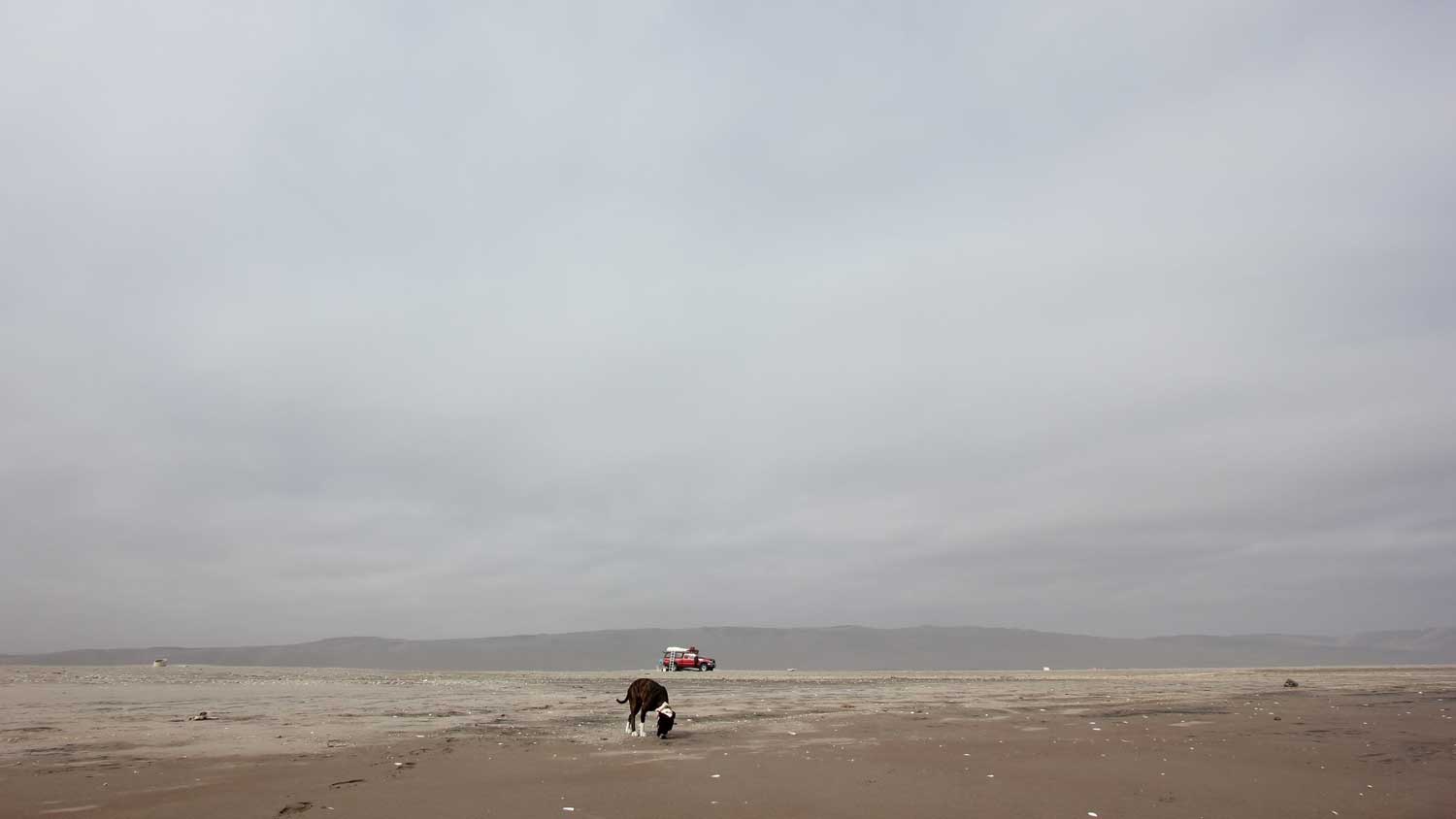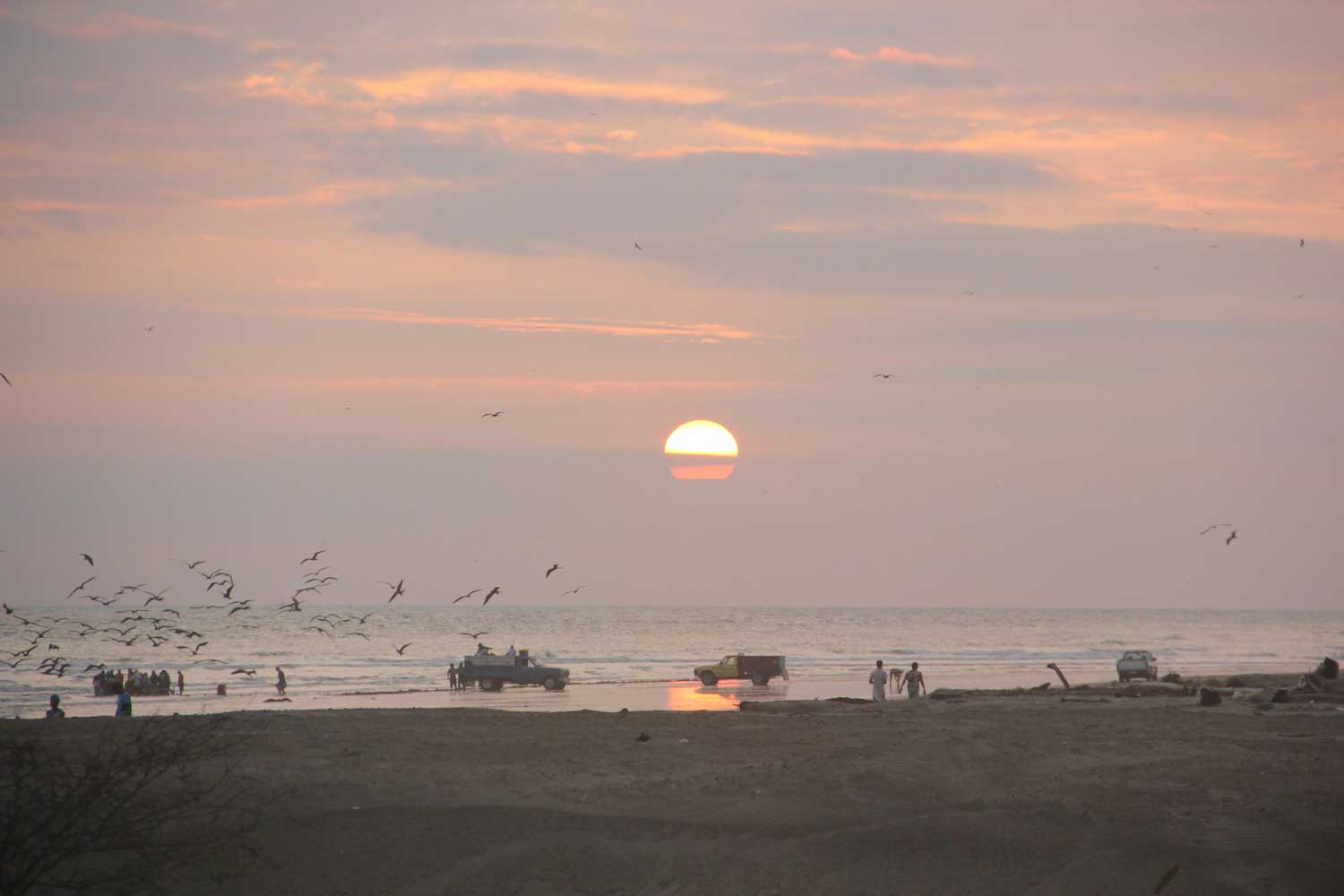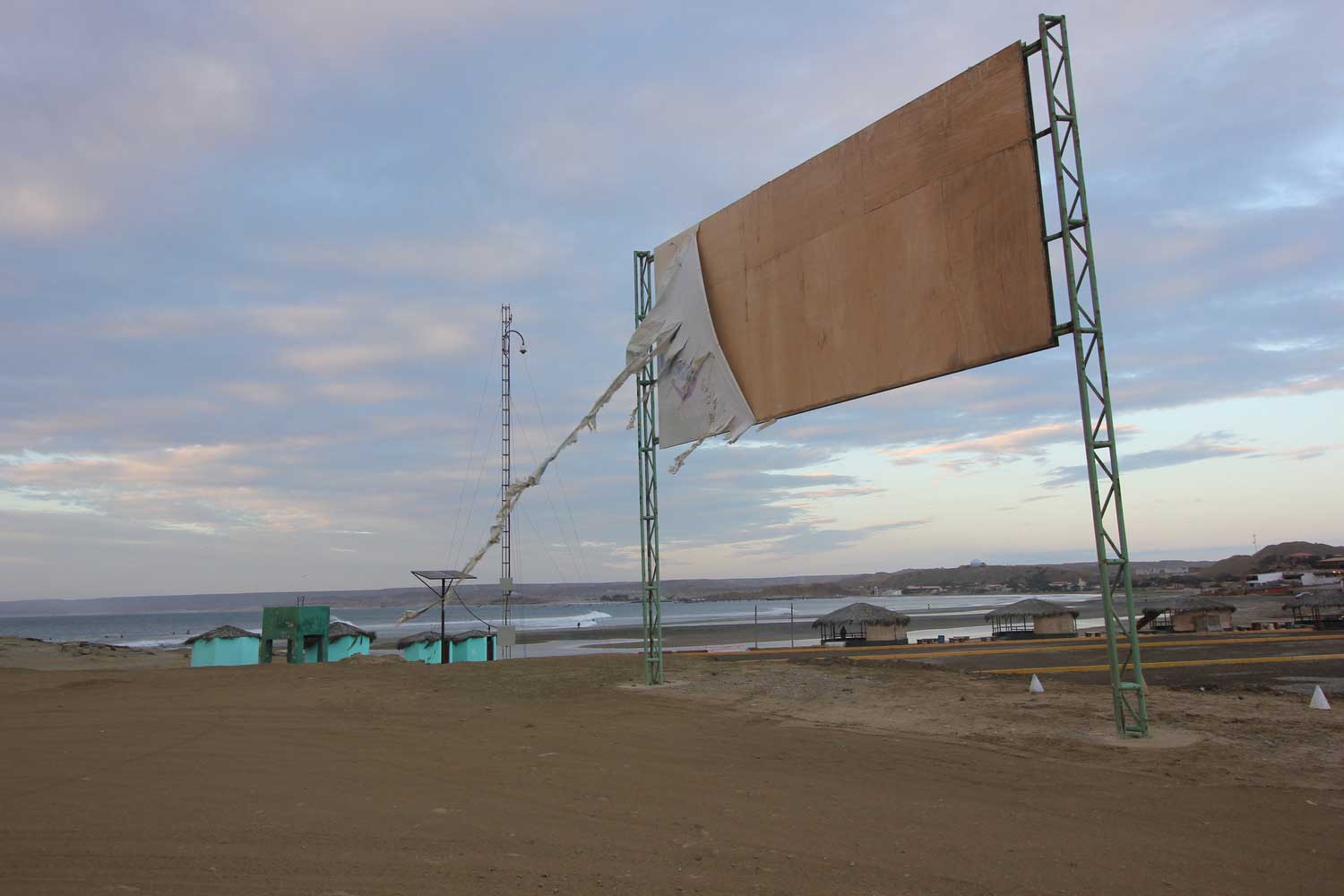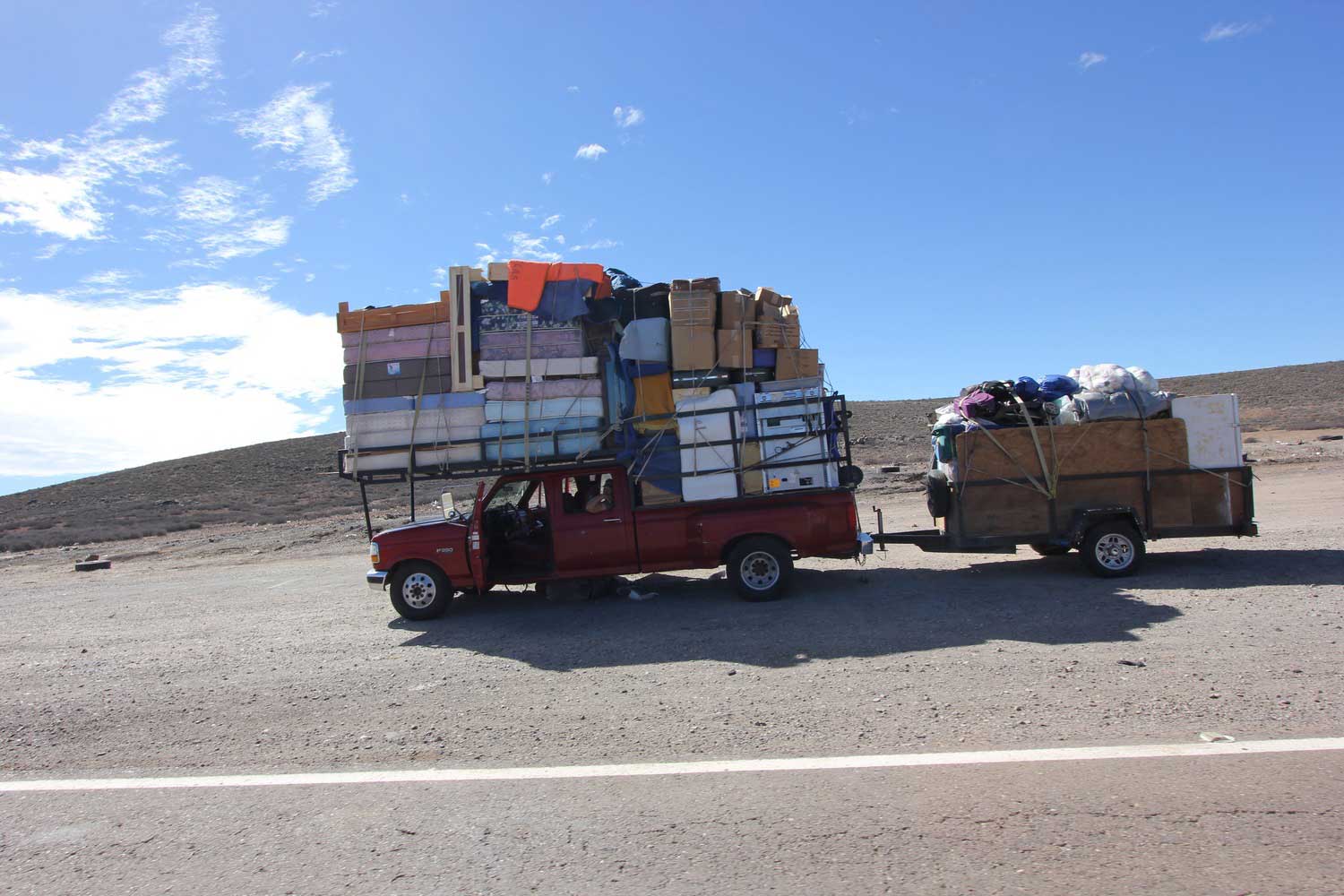Structure and Control: Life on the Road

Structure And Control: Life On The Road
Text and photos by Sara Moran
I think a lot these days about the balance of structure and control; I’m re-acclimating to life in “normal” society after 15 months on the road.
Before I embarked on my travels, I was nervous about my ability to utilize an inner sense of control in an environment with little structure. I would be transitioning from a 9-5 existence in a major American metropolis, to living out of a vehicle, driving 3rd world countries, and budgeting $500/month.
I reflected on the topic in a personal therapy session. I questioned, and explored, the need to create a daily schedule as a means of facilitating my inner sense of control (note: this concept was not in my conscious mind at the time. It was put into words upon later reflection).
In the end, I did just that. I wrote down a list of tasks that were to be completed on a daily basis with the intention of holding everything together in a neat and organized plan. I was under the impression that this band-aid would prevent deeper issues from being exposed. If there was a list, a task sheet, a schedule, or something to “refer to”, then everything would be fine. I remember sensing that my therapist was not onboard. I recall feeling like she was listening, not wanting to interject due to my excitement about some sort of “solution”, but in reality she was not buying what I was selling. She wanted to go deeper – or maybe that was the other part of me.
Rituals such as yoga and journaling would assist in providing me with a sense of order, and thus, a feeling of safety. I also had in mind volunteer work. I believed that a sense of purpose would ease any potential anxiety. I really questioned if I would be able to handle all that freedom and I wondered how I would respond. Would I go crazy, freak out, pick fights, cry?
Answer: All of the above.
It was okay, though. I reference a personal mantra: “Everything will be just fine.” Everything was just fine. And that list, it lasted like 2 days. It is probably in a trash can in Pennsylvania.

Let’s define “structure”. Or, more accurately, I will explain how I am viewing the concept. When I refer to an environment of little structure, I am referencing the idea that there would be no work schedule. It goes further.

It is no need to be anywhere, at any specific time. It is no timeline, deadlines, monthly bills – and maybe as far as no scheduled time for meals.

It is a lack of paved roads. It is countries with no rules/laws regarding children wearing helmets, dogs on leashes, and flies in the kitchen.

And what about other people? Life on the road is absent of feedback from bosses, returned phone calls, unanswered emails, voicemails about hair appointments.

You are in the moment. You are on your own. You are your own boss.
Some think that life on the road is easy. And all romanticized notions aside, I now realize that the lack of structure is the most challenging aspect of traveling in this manner. You are tested to call up a deeper sense of internal control and find ease with the idea that you are in control, or that you can be in control, despite the absence of structure. You are always in control (independent of your surroundings and environment).
I will provide a simple example of this concept in action. I flashback to a 2-hour ATM line in a large Ecuadorian town. There is one ATM and a line of a hundred people (not exaggerating) just waiting. The local Ecuadorians (and a traveling American couple) are patiently awaiting their chance to withdraw money from the machine. The bank is closed. The other ATM is broken. The next ATM is hours away. The World Cup is on the television at the restaurant next door and there is a prevailing sense that people were comfortable with a situation for which they have no control – children are playing, people are casually conversing, snacking on foods, and just hanging out as if we had all just been invited to spontaneous block party. This blew my NYC based sense of reality. Isn’t there an ATM down the road, in the next town, or within 50 miles? Isn’t there a manager we can speak to? A total solution-based mentality.
But that was just the way it was. A lesson of Zen brought to you by Ecuador. And ask anyone who has traveled Central America about lines and waiting; it will blow your mind. These are the real A-ha moments of travel. These days, when I am frustrated by a delayed traffic light, a 3-person Dunkin’ Donuts line, 10 minutes of on-hold music from my insurance company- I internally reference that ATM line. While I am awaiting a customer service representative, I will place my Muzak on speaker phone and simultaneously engage in my daily socialization goals.
I reflect back to my life prior to travel. I was living in a highly structured environment, as demonstrated by the simple act of waiting for the New York City subway. When the train is a mere 1 minute late, you can observe people reacting with a spectrum of behaviors ranging from the benign leg shaking, toe tapping, and arm crossing to the more extreme screaming, swearing, and adult tantruming. In such a structured environment you can observe people, on a daily basis, who are not in control or are in the process of losing control. I invite you to reflect on the opposite – travel. And I am not talking about going on vacation (although there is nothing wrong with that). In my travel experience there was minimal structure; but a sense that I was provided with a feeling of being in control because I was ultimately making daily choices independently of an outlined system. As I began to embrace this lack of control, I found I was welcomed by a whole new sense of freedom and, in turn, this mentality was carried along with me on my journey. So from the depths of nothingness, I was able to welcome an inner fullness. And with the absence of insignificant clutter and distraction, my mind was able to access relaxation.

I work as a mental health therapist. I am currently employed at a residential house for young adults with persistent mental illness. Part of my role is to help them navigate the structure of society: get a job, pay rent, socialize, etc. It is valuable work and I get satisfaction from thinking outside of the box. Last week, I met with a state caseworker who is involved with the care of one of my residents. This woman (the caseworker) has been working for the “system” for 20 plus years.
As I struggled with finding words for a complicated situation, she provided me with much need feedback. She explained to me how we want people to fit into a box. She spoke about how mental health workers enjoy working with individuals who are easy to define, or that we can “understand”, but once someone falls outside that box, we are quick to let them go, or to make statements of, “I can’t do anything for them”. I knew this, on some level, but she provided me with a fresh perspective at the right moment. I needed a reminder as to why I pursue my work. If someone is not able to conform, falls outside the box, is “different”, it does not mean they are dangerous, crazy, or out of control. This applies to other countries and societies, too. And this applies to different levels of our mind, and psyche. For me, this is directly relatable to life on the road and my experience of travel.
I can conform, but I don’t want to. I struggle with maintaining this balance. Life on the road began to assist me in accepting this aspect of my personality.
The individuals with whom I work- in essence, I am trying to get them to conform to a system (while still respecting their dreams, wishes, and sense of identity). Their success is measured, and determined on their ability to conform – but sometimes they don’t, or they don’t want to. I get it.
Sometimes I want to tell them to start driving.

Sara is an art therapist. In mid-2013 she and her husband Dean set off on a pan-American adventure – New Jersey to Argentina. They’ve recently returned and spent the winter in Cape Cod, Massachusetts.
Be the first to comment